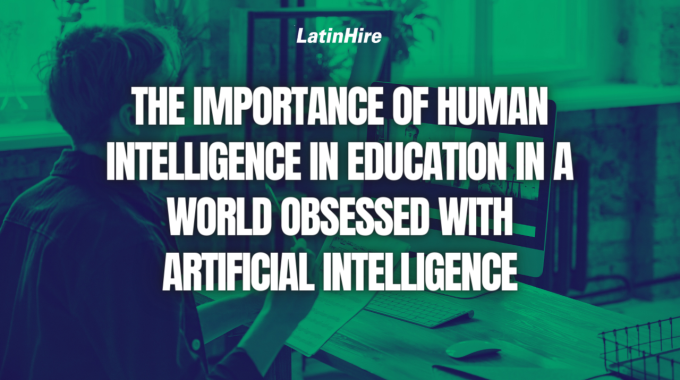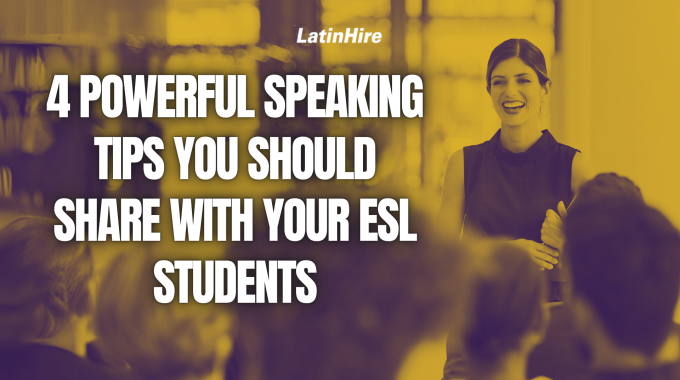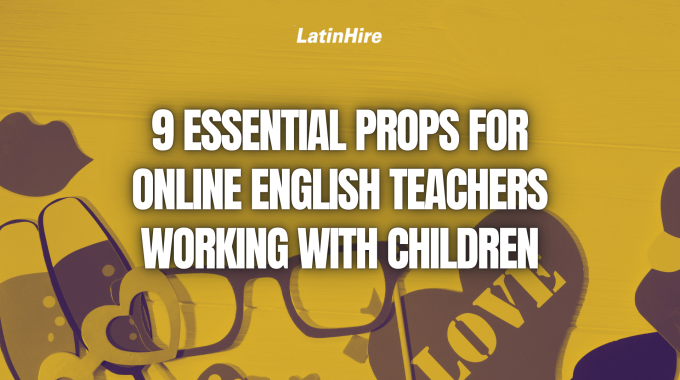As online educators, the struggle to obtain and maintain student attention is too common of…

The Importance of Human Intelligence in Education in a World Obsessed with Artificial Intelligence
Even before the rise of ChatGPT, talk of AI and how robots are going to take over the world swirled around the internet and made its way into everyday conversations. Now that AI is advancing more rapidly than ever, we’re genuinely worried that it will steal our jobs, particularly in education, where it’s speculated to replace teachers and tutors.
However, amidst this technological revolution, one thing will never change: the irreplaceable value of human intelligence in education. It’s crucial for us educators to acknowledge and cherish the unique qualities that only humans possess. While we can certainly work alongside technology, rest assured that AI will never take over our jobs.
In this article, we’ll discuss some of the reasons why human educators are indispensable. Whether you are a seasoned educator or just beginning your teaching career, we hope you feel empowered in your role and value in the educational landscape after reading this article. Here are some reasons why human educators are irreplaceable:
1) Cultivating Emotional Intelligence

AI is really good with what it does, which is processing data and performing tasks with high efficiency. However, it lacks the depth of emotional intelligence and connection essential for effective teaching and learning.
Human educators bring empathy, understanding, and compassion to the educational experience, creating a supportive environment where students feel valued and loved.
From comforting a distressed student to celebrating another’s success, the emotional connection between a teacher and student is what fosters a sense of belonging to motivate the learners to thrive.
2) Nurturing Critical Thinking Skills
Education is about more than just the transmission of knowledge and the regurgitation of information during assessments. It involves critical thinking, creativity, and problem-solving, skills that are vital in the workplace.
Unlike AI, which operates within predetermined parameters, human educators possess the capability to inspire curiosity, stimulate intellectual thought, and encourage students to question, and analyze information rather than take it at face value.
Through engaging students in discussions and leading thought-provoking activities, educators ignite that spark which fuels a love of learning among students for a lifetime.
3) Adapting to Individual Needs

Every student is unique, with distinct learning styles, strengths, and challenges. While AI can provide personalized recommendations based on its algorithms, it cannot match the intuition and adaptability of human educators.
Whether it’s adjusting the pace of instruction, tailoring teaching methods to accommodate diverse learners, or providing one-on-one support, real teachers have the flexibility and insight to meet students where they are and guide them towards academic success.
Some of the best memories from our school days were those moments with our teachers that were deeply personal, tailored to our own needs. As educators, we have the power to create these meaningful connections that transcend mere instruction and leave a lasting impact on our students.
4) Fostering Collaboration and Communication
Acquiring new knowledge and information is not the entire purpose of education, in fact it only plays a small role. True education leads to the development of essential social and soft skills that can help a student become successful in life after formal schooling.
Skills like collaboration, communication, and teamwork are now more important than ever, leading us away from an information-based society to a skill-based society. Information can be looked up easily through a quick Google search, but the soft skills of being human is invaluable.
Human educators can facilitate peer interactions, group projects, and classroom discussions, creating opportunities for students to learn from each other, exchange ideas, and build interpersonal connections. The human touch of real educators remains indispensable in cultivating all the qualities that make us human.
5) Serving as Role Models and Mentors

Teachers play a pivotal role in shaping not only students’ academic lives, but also their characters, values, and aspirations. Through the words, actions, and mere presence of educators, they inspire confidence, resilience, and a growth mindset, instilling the belief that with hard work and perseverance, any challenge can be overcome.
Many of the most cherished memories formed during a child’s education stem from interactions with exceptional teachers. It’s in those moments when our teachers made us feel valued or provided the encouragement we needed to navigate through tough times. A child may never say, “I love my AI,” but they will always say, “I love my teacher.”
We naturally listen to and learn better from those we can relate to. Humans, therefore, learn best from other humans. Despite the advancements in AI, it always feels distant, missing the nuances of human emotions and connection. If our young people are left to be raised and educated by robots, then there’ll be a whole new revolution to retrain them on how to be human. So, why not just let human educators keep their jobs?
We hope you found this article interesting and reassuring! Are you worried that AI will take over the teaching profession? Share your thoughts in the comments below!



